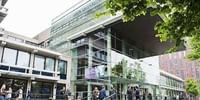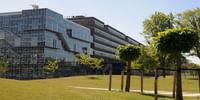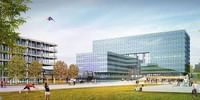is an industry of major importance across the globe. However, tourism is more than just a powerful economic force. Tourist activities affect the environment of travel destinations and influence cultures all over the world. Tourism is very sensitive to global transformations such as climate change, economic developments, and geopolitical risks.?
You will learn how to study tourism from different scientific perspectives. After graduation, you can apply your knowledge to the sustainable development of tourism, or continue your education with a master programme.
Tourism is a complex and multifaceted phenomenon. As such, it is important that students develop a broad understanding of the tourism domain. The BSc Tourism curriculum is designed to meet this goal.
In the course of the programme, students move progressively towards increased educational independence. Educational guidance is at its height during the first year and gradually decreases over the next two years. The first two years of the programme take place at NHTV in Breda. The third year takes place in . However, most courses (in all three years) are co-taught by instructors from both NHTV and Wageningen University.
Future career and mastersThe BSc Tourism prepares students for a broad range of MSc programs or direct career opportunities. The BSc Tourism is a relatively young program that started since September 2010.?
Our first graduates entered diverse MSc programs and careers in five thematic directions. These directions are within the themes of: Leisure and Tourism; Environmental Sciences; Society and Culture; Economics and Management or International Development.?
- Leisure and Tourism
- Environmental Sciences
- Society and Culture
- Economics and Management
- International Development
- Direct Work Experience














